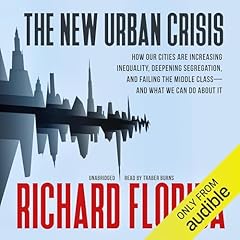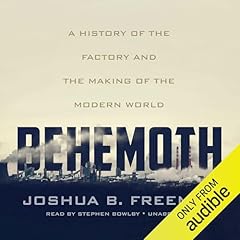
Welcome to the Urban Revolution
How Cities Are Changing the World
No se pudo agregar al carrito
Add to Cart failed.
Error al Agregar a Lista de Deseos.
Error al eliminar de la lista de deseos.
Error al añadir a tu biblioteca
Error al seguir el podcast
Error al dejar de seguir el podcast
 Exclusivo para miembros Prime: ¿Nuevo en Audible? Obtén 2 audiolibros gratis con tu prueba.
Exclusivo para miembros Prime: ¿Nuevo en Audible? Obtén 2 audiolibros gratis con tu prueba.Compra ahora por $22.22
-
Narrado por:
-
Eric Jason Martin
-
De:
-
Jeb Brugmann
The revolutions that have taken place around the world during the last 50 years - the ousting of Marcos and the Shah of Iran; the fall of communist regimes in Eastern Europe; the end of Apartheid in South Africa; and, indeed, the civil rights revolution in America - were fundamentally urban revolutions. They were the revolutions of Manila, Teheran, Gdansk, Leipzig, Berlin, Johannesburg, and Detroit, muscular assertions of new classes of city-dwellers intent on ending their marginalization as they struggled to build their new livelihoods, freedoms, and communities in cities.
In Welcome to the Urban Revolution, Jeb Brugmann argues that the city itself had become our era's medium for revolutionary change: not only political, but technological as well. Though we think of them as a hotbed for poverty and crime, cities are not just a source of problems and conflict. They can also be a source of solutions to the major problems of our day: poverty, social inequality, and environmental sustainability. Brugmann here explains what is unique and important about cities and how they grow, the ways global issues are being solved in individual cities, and how real people are living with urban migration, day in and day out.
©2009 Jeb Brugmann (P)2012 Audible, Inc.Los oyentes también disfrutaron:






















